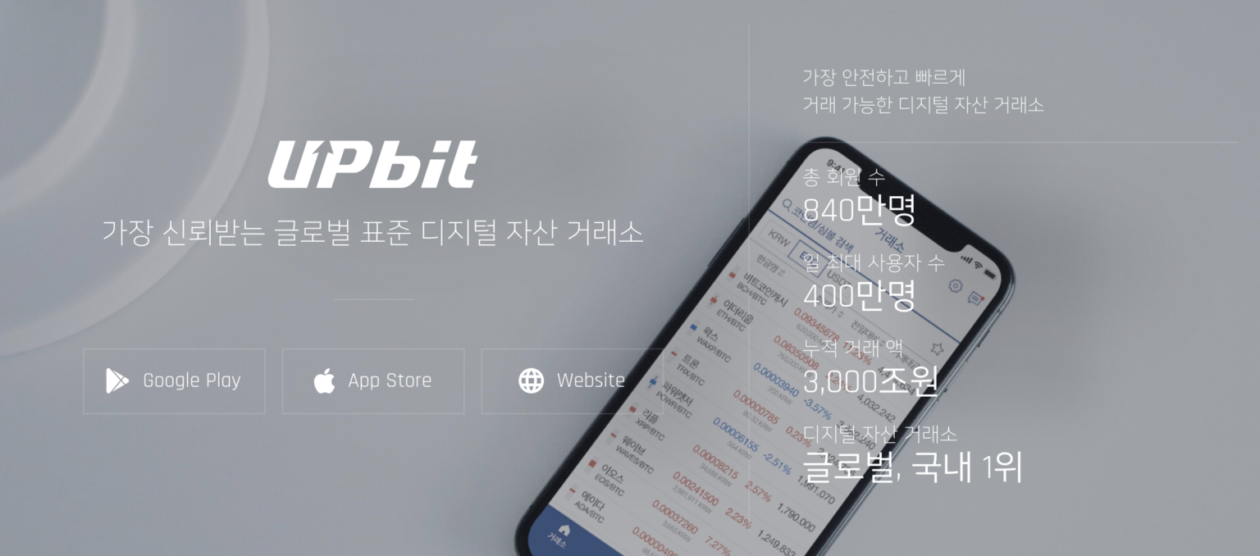Upbit, South Korea’s largest cryptocurrency exchange with more than 80% of the country’s daily trade volume, has been targeted for its listing and delisting of altcoins. Lawmaker Min Byoung-dug, a member of the National Policy Committee, claims Upbit deliberately listed cryptocurrencies that lack substance to earn huge amounts of transaction fees only to delist them later, causing damage to investors.
According to Min, Upbit delisted a total of 145 tokens from its inception in October 2017 to June this year. This is nearly half the total of 298 cryptocurrencies the virtual asset exchange has ever listed. From the now-delisted tokens, the exchange earned 314 billion Korean won (around US$263.7 million) worth of transaction fees, accounting for 7.78% of the total transaction fees Upbit has earned, which is four trillion won, or US$3.35 billion.
The lawmaker asserts that Upbit is earning huge commission profits from inducing its users to altcoins that will likely be delisted in the future. In his report, he said, “It is questionable that Upbit’s doing its basic responsibilities and obligations as a virtual asset exchange, let alone its social responsibilities.”
Moreover, the lawmaker challenged Upbit’s listing criteria, where he confirmed that crypto developers only need to submit a two-page report on the cryptocurrencies to be listed on the platform. He deemed this too simple when users’ funds are at stake. “Virtual asset exchanges should come up with transparent and systematic listing and delisting standards,” the lawmaker argued.
Min brought this issue to the attention of the chairman of the Financial Services Commission (FSC) Koh Seung-beom at the National Assembly’s annual review today. Although the FSC chairman insisted the listing and delisting of virtual assets are to be done autonomously by the exchanges, he also said that damage to users should be minimized during the listing and delisting process, and that a solution should be discussed under the upcoming act on the virtual asset industry.
In response, Upbit told Forkast.News in a written reply that it verifies digital assets through strict and fair standards with experts from within and outside the company, adding that the delisted cryptocurrencies were not faulty at the time of initial listing.
“Upbit systematically manages cryptocurrencies on whether they meet the standards by monitoring their business situation, technical support, and level of transactions regularly and frequently,” Upbit said in its response. “If there is risk of harming investors, we request an explanation, review violations of relevant laws on anti-money laundering, and use of unfair transactions such as market price manipulation and terminate the transaction support according to the procedure,” it explained.
While Upbit remains to be under public scrutiny, Korbit has become the second officially registered virtual asset exchange in South Korea, as announced yesterday by the Financial Services Commission (FSC). Only Upbit, Korbit, Bithumb and Coinone have complied with all of the criteria under the country’s new regulations for virtual asset businesses, while the Financial Intelligence Unit has yet to accept Bithumb and Coinone’s compliance report.
Heralded as the four major exchanges of South Korea, Upbit, Bithumb, Coinone and Korbit have seen exponential growth from last year. According to data from the Financial Supervisory Service, the amount of Korean won deposits on Sept. 24 grew 1368.2% from June 2020. The four are the only virtual asset exchange platforms that provide users cash-to-crypto services, as each of them have partnered with a local bank to provide exchange users with real-name withdrawal and deposit accounts.





